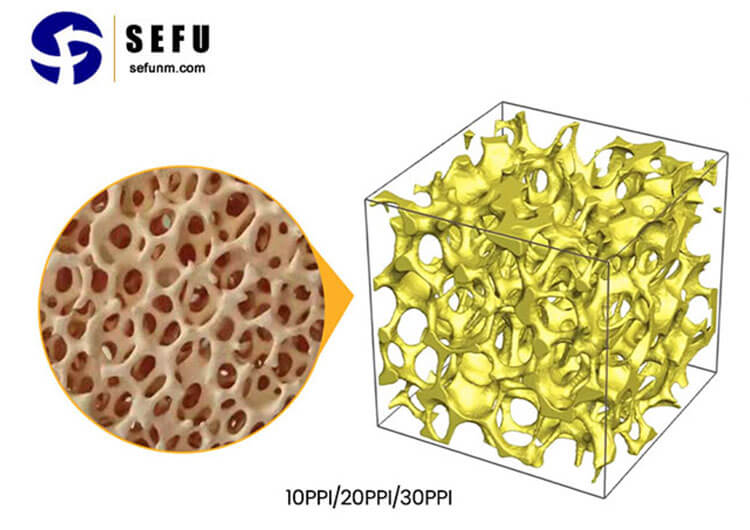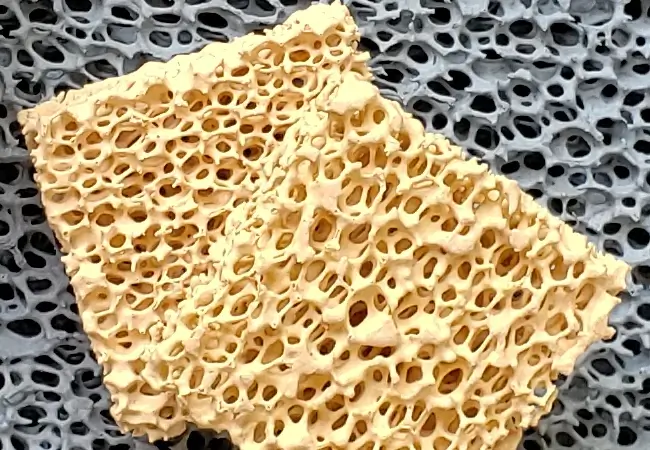Zirconia ceramic foam filters offer several advantages over other types of filters used in the foundry industry.
Zirconia Ceramic Foam Filters Compare to Other Types of Filters in Casting
Here’s a comparison of zirconia ceramic foam filters with two commonly used filter types: silicon carbide ceramic foam filters and alumina ceramic foam filters.
Filtration Efficiency:
Zirconia ceramic foam filters exhibit superior filtration efficiency compared to silica-based filters and alumina-based filters. The unique three-dimensional network structure of zirconia filters allows for the efficient removal of impurities, such as inclusions, oxides, and slag, from the molten metal. The fine and uniform pore structure of zirconia foam filters ensures a high level of filtration, resulting in cleaner and higher-quality castings with reduced defects.

Thermal Shock Resistance:
Zirconia ceramic foam filters have excellent thermal shock resistance, they can withstand a high temperature of 1700 degrees Celsius, making them highly suitable for use in the foundry industry, such as the steel casting process. The filters can withstand rapid temperature changes without fracturing or failure, ensuring their performance and longevity in demanding casting processes. In contrast, alumina-based filters have relatively lower thermal shock resistance compared to zirconia filters, they can withstand the temperature of 1200 degrees Celsius.
Chemical Resistance:
Zirconia filters exhibit superior chemical resistance compared to silica-based filters. They can withstand the corrosive effects of molten metals and alloys, as well as various chemicals used in foundry processes.
Mechanical Strength:
Zirconia ceramic foam filters possess excellent mechanical strength and structural integrity, which is crucial for their successful application in the foundry industry. They can withstand the pressure exerted by the molten metal during casting without deforming or collapsing. In comparison, both silica-based and alumina-based filters have lower mechanical strength.
Versatility:
Zirconia ceramic foam filters are highly versatile and compatible with a wide range of metals and alloys, including steel, iron, aluminum, copper, and their alloys. They can be used across various casting methods, such as sand casting, investment casting, and continuous casting. This versatility allows foundries to use zirconia foam filters in diverse applications, catering to different industry requirements. Silica-based and alumina-based filters may have limitations in terms of compatibility with certain metals or casting methods.

Cost-effectiveness:
While zirconia ceramic foam filters may have a higher initial cost compared to silica-based filters, they offer superior performance and durability, leading to cost savings in the long run. Zirconia filters’ high filtration efficiency and extended lifespan contribute to reduced scrap rates, improved casting yield, and enhanced overall process efficiency.
Conclusion
Overall, zirconia ceramic foam filters outperform silica-based filters and alumina-based filters in terms of filtration efficiency, thermal shock resistance, chemical resistance, mechanical strength, versatility, and long-term cost-effectiveness. These factors make zirconia ceramic filters the preferred choice for many foundries aiming to achieve high-quality castings and optimize their operations.


